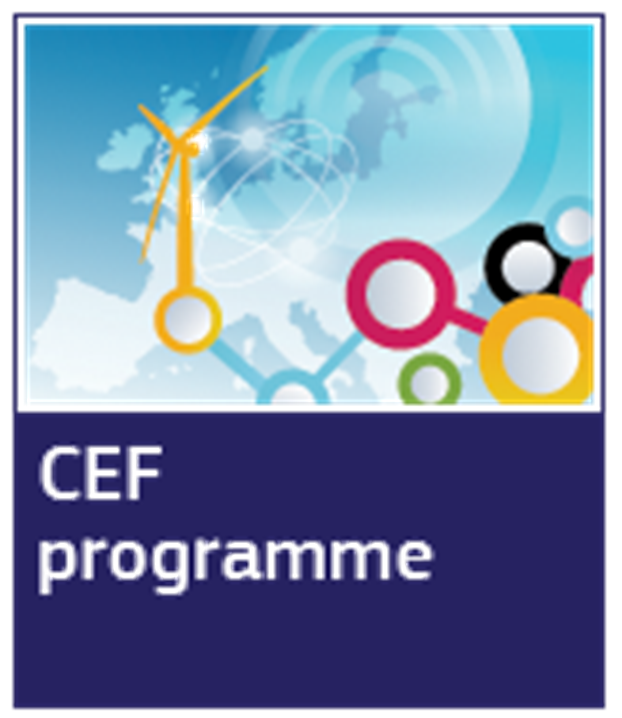About us
Projects for implementation of TAF TSI
OLTIS Group products are verified as complying with the TSI

The European Union Agency for Railways (ERA) has verified the OLTIS Group software products with TAF TSI implementations as compliant with Regulation No. 1305/2014/EC and its technical documentation.
The verification process includes products for both railway undertakings and infrastructure managers.
TAF TSI compliance report is published on the ERA website. The report is available
on the following link: www.era.europa.eu
Projects for implementation of TAF TSI

The OLTIS Group succeeded in 2016, 2017 and 2024 under the Connecting Europe Facility (CEF) funding programme among projects that will make a significant contribution to the digitization and decarbonisation of transport. Both ongoing projects focus on the development and implementation of standards for data exchange in accordance with the Regulation on the technical specification for interoperability on the telematics applications for freight (TAF-TSI) into information systems used by rail carriers to plan and support their operations.
The TAF-TSI requires existing functionalities to be extended and to communicate with infrastructure managers, cooperating carriers and wagon keepers. The projects aim to help private operators who have not yet used complex systems operated by large or national operators but who must now meet the requirements in terms of complexity of the required functionalities. The projects will allow these private operators to achieve a less costly but equally comprehensive solution to full interoperability with large national carriers.
Title: Implementation of TAF-TSI at Private Railway Undertakings 
Programme: CEF Transport
Grant Agreement No: INEA/CEF/TRAN/M2015/1137518
Action No: 2015-CZ-TM-0056-W
Duration of the Action: 2017 – 2019
Coordinator: OLTIS Group (Czech Republic)
Private railway undertakings in the Czech Republic:
– BF Logistics s.r.o., Beranových 65, 199 02 Praha
– IDS CARGO a.s., Albertova 229/21, 779 00 Olomouc
– Ostravská dopravní společnost, a.s., U Tiskárny 616/9, 702 00 Ostrava 1
– SD – Kolejová doprava, a. s., Tušimice 7, 432 01 Kadaň
– UNIPETROL DOPRAVA, s.r.o., Litvínov – Růžodol 4, 436 70 Litvínov
Private railway undertakings in Slovakia:
– Express Group, a.s., Plynárenská 7/B, BBC V., 821 09 Bratislava 2
– LOKORAIL, a.s., Horárska 12, 821 09 Bratislava
– PSŽ – Prvá Slovenská železničná, akciová spoločnosť, Ružová dolina 10, 821 09 Bratislava
– Railtrans International a.s., Trnavská cesta, 920 41 Leopoldov
– Petrolsped Slovakia, s. r. o., Arm. gen. L. Svobodu 2839/1, 984 01 Lučenec
Title: Implementation of TAF-TSI at the Hungarian Private Railway Undertakings 
Programme: CEF Transport
Grant Agreement No: INEA/CEF/TRAN/M2016/1361703
Action No: 2016-EU-TMC-0134-W
Duration of the Action: 2018–2020
Coordinator: OLTIS Group (Czech Republic)
Partners:
– MMV Magyar Magánvasút Zrt., Kerék u. 80., 1035 Budapest, Hungary
– FLOYD Zrt., Madarász Viktor utca 47-49., 1138 Budapest, Hungary
Title: Removing interoperability barriers between entities in rail freight transport with a particular focus on intermodal transport 
Programme: CEF Transport
Grant Agreement No: 23-EU-TG-OPERATOR
Action No: 101175909
Duration of the Action: 2024 – 2028
Coordinator: OLTIS Group a.s., Dr. Milady Horákové 1200/27a, 779 00 Olomouc
Participants:
– CID International, a.s.
– PKP Cargo International a.s.
– KARPIEL SPOLKA Z OGRANICZONA ODPOWIEDZIALNOSCIA
– CLIP TERMINALS SP ZOO
– OLTIS Polska Sp. z o. o.
The main objective of the project is the implementation of TAF TSI regulation for data availability and accessibility into information systems, used by operators of intermodal terminals for planning and operational management processes. The project will help the operators to achieve full interoperability, which can be already seen at some railway infrastructure managers or larger and medium railway undertakings. The speed of information exchange with external systems will increase, which will cause synergic effects, such as shortening delivery periods in supply chain, larger volume of transported shipments, and even more flexible service provision. This will help to increase the competitiveness of rail transport compared to other transport modes, and reduce negative environmental impacts; thus, it will lead to a greater modal shift.
Funded by the European Union. Views and opinions expressed are however those of the author(s) only and do not necessarily reflect those of the European Union or CINEA. Neither the European Union nor the granting authority can be held responsible for them.